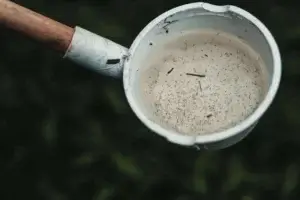TL;DR: The Truth About Natural Mosquito Repellents: Do They Really Work?
Natural mosquito repellents offer an eco-friendly alternative to chemical-based solutions, utilizing essential oils like citronella, eucalyptus, and peppermint to deter pests. While they may require more frequent application than DEET-based repellents, they provide a safer option for families, pets, and the environment. By combining these natural solutions with sustainable practices like removing standing water and planting mosquito-repelling plants, you can create a comprehensive pest control strategy. Contact Gunter Pest & Lawn for a full plan.
As the warm months roll in, many Kansas City homeowners find themselves in a battle against mosquitoes, searching for effective solutions that align with their eco-friendly values. Natural mosquito repellents have gained popularity as a safer alternative to chemical-laden options, but do natural repellents work as effectively as we hope?
In this piece, we’ll delve into eco-friendly pest control, exploring various natural mosquito repellents, their effectiveness in mosquito prevention, and their safety for your family and pets. Contacting Gunter Pest & Lawn for your mosquito needs is the #1 way to get rid of them.
Whether you’re a homeowner or a local business owner, join us as we uncover the truth about these safe mosquito repellents and discover how they can be a part of your strategy for a pest-free environment. Let’s embark on this journey together and find out if natural solutions can truly keep those pesky mosquitoes at bay.
Understanding Natural Mosquito Repellents
What Are Natural Repellents?
Natural repellents are substances derived from plants or other natural sources that deter mosquitoes without relying on synthetic chemicals. These eco-friendly alternatives often include essential oils like citronella, lemongrass, eucalyptus, and peppermint. Some natural repellents come in the form of candles, sprays, or even plants that can be grown in your garden.
Related Links
- How To Protect Yourself And Your Home From Mosquitos
- 7 Natural Pest Repellents to Keep Your Home Bug-Free
- Know Your Enemy: Mosquito Control In Kansas City
- What Kills Mosquito Larvae? Effective Strategies For A Pest-Free Environment
- Kansas City Lawn Care
They work by masking the scents that attract mosquitoes or by emitting odors that mosquitoes find unpleasant. While they may not be as long-lasting as chemical options, natural repellents offer a safer, more environmentally conscious approach to mosquito prevention. Many people prefer these options for their low toxicity and pleasant aromas, making them ideal for use around children and pets.
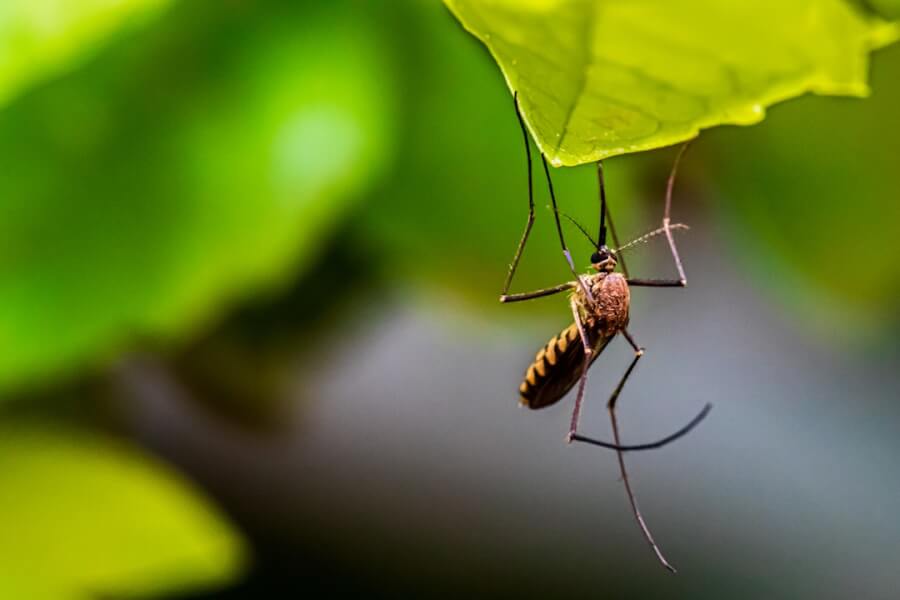
Common Ingredients In Natural Repellents
Natural mosquito repellents often contain a variety of plant-based ingredients known for their insect-repelling properties. Citronella oil, derived from lemongrass, is perhaps the most well-known and widely used. Other common ingredients include the oil of lemon eucalyptus, which the CDC recognizes as an effective repellent, and neem oil, a traditional remedy from India.
Key Takeaways
- Natural repellents work, but need frequent application – Ingredients like lemon eucalyptus oil and neem oil can be effective but require reapplication every few hours.
- Safer for families and pets – Unlike chemical-based options, natural repellents pose minimal risks for children, pets, and individuals with sensitive skin.
- Eco-friendly alternative – Natural repellents are biodegradable, reducing environmental impact compared to synthetic insecticides.
- Multiple application methods available – Sprays, candles, lotions, and even plants like lavender and marigolds can deter mosquitoes effectively.
- Best results come from a multi-pronged approach – Combining natural repellents with habitat modifications (like eliminating standing water) maximizes mosquito control.
Peppermint, lavender, and rosemary oils are also popular choices, valued for their pleasant scents and mosquito-deterring abilities. Some natural repellents incorporate herbs like catnip or thyme, which contain compounds that mosquitoes find offensive. Soybean oil is another ingredient that has shown promise in repelling mosquitoes. These natural ingredients offer a safer alternative to DEET and other synthetic chemicals, making them an attractive option for eco-conscious consumers seeking effective mosquito prevention.
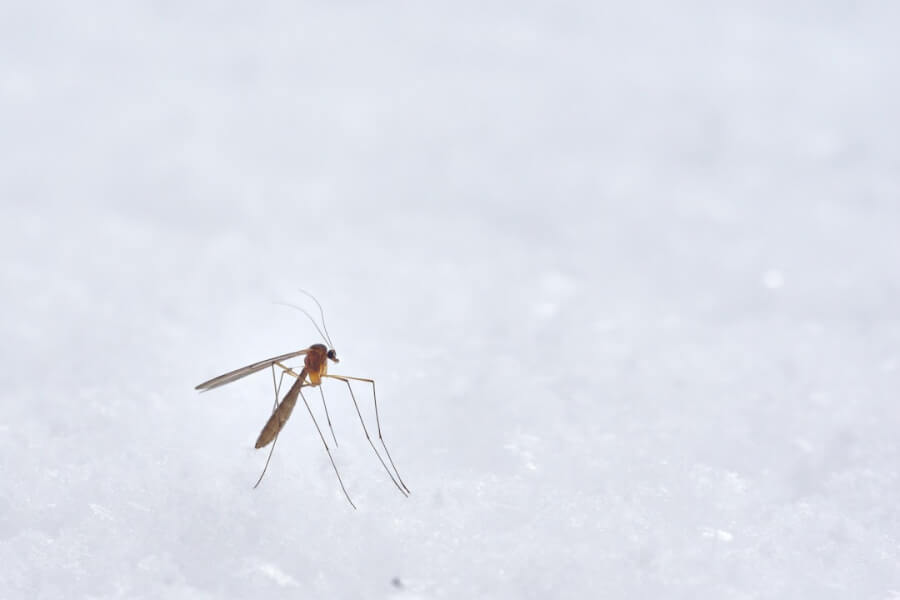
Benefits Of Using Natural Options
Opting for natural mosquito repellents offers several advantages. First and foremost, these products are generally safer for human health and the environment. Unlike chemical repellents, natural options typically don’t contain harsh synthetic ingredients that may cause skin irritation or other adverse reactions. This makes them particularly suitable for people with sensitive skin, children, and pregnant women.
Natural repellents are also biodegradable and don’t leave harmful residues in the ecosystem. Many users appreciate the pleasant scents of natural repellents, which can be a refreshing alternative to the strong chemical odors of conventional products.
Additionally, by choosing natural options, consumers support sustainable practices and reduce their environmental footprint. While natural repellents may require more frequent application, many find this a small trade-off for the peace of mind that comes with using eco-friendly pest control solutions.
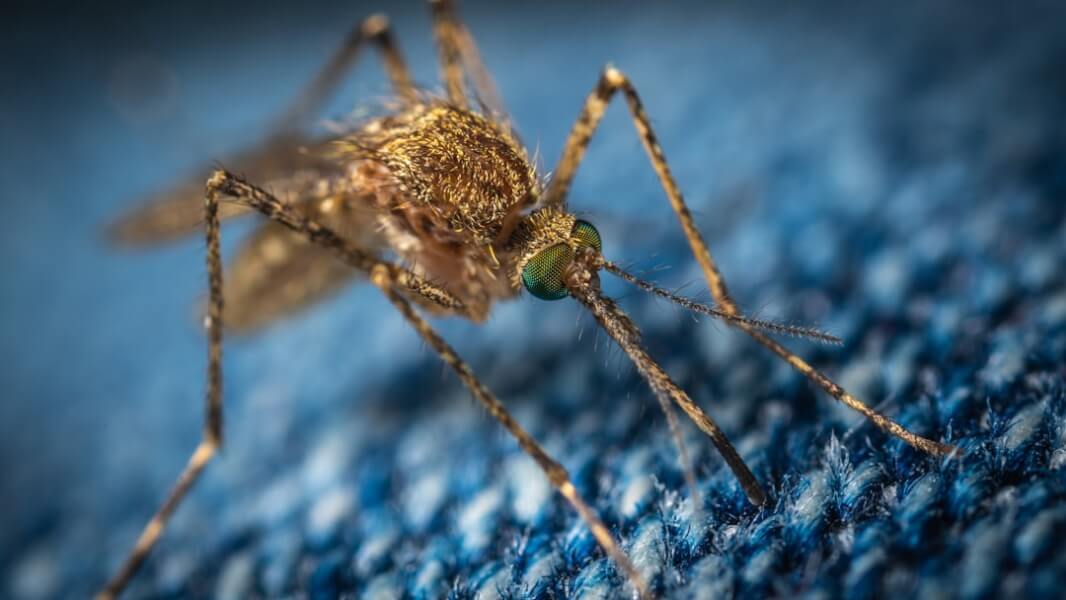
Do Natural Repellents Work?
Scientific Studies And Findings
Research on natural mosquito repellents has yielded mixed results, but some promising findings have emerged. A study published in the Journal of Insect Science found that the oil of lemon eucalyptus was as effective as DEET in repelling mosquitoes. Another study in the Malaria Journal showed that neem oil provided protection against mosquito bites for up to three hours.
However, the effectiveness of natural repellents can vary widely depending on the specific ingredients and formulations. Some studies suggest that natural repellents may need to be reapplied more frequently than chemical alternatives to maintain their effectiveness. While more research is needed, these scientific findings indicate that certain natural repellents can indeed work effectively for mosquito prevention, offering a viable alternative for those seeking eco-friendly pest control solutions.
Comparing Natural And Chemical Repellents
When it comes to effectiveness, chemical repellents like DEET often outperform natural alternatives in terms of duration and strength. However, natural repellents can still provide significant protection when used correctly. While DEET may last up to 8 hours, natural repellents typically need reapplication every 2-3 hours. The trade-off lies in the safety profile and environmental impact.
Natural repellents pose fewer risks of skin irritation and don’t harm ecosystems when washed off.
They’re also often more pleasant to use, with appealing scents instead of harsh chemical odors. Chemical repellents, while longer-lasting, can cause skin reactions in some people and may have negative environmental effects. Ultimately, the choice between natural and chemical repellents depends on individual needs, preferences, and the specific mosquito prevention situation at hand.
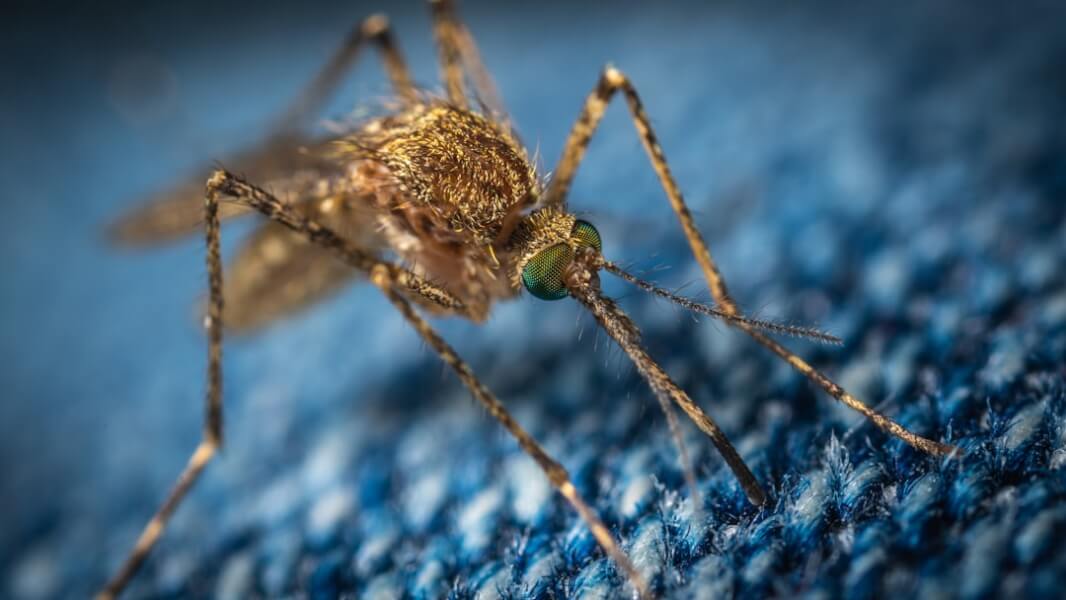
User Experiences And Testimonials
Many users report positive experiences with natural mosquito repellents, praising their effectiveness and pleasant scents.
Sarah, a homeowner in Kansas City, shared, “I switched to a lemon eucalyptus spray last summer and was amazed at how well it worked. I could enjoy my backyard without being eaten alive!”
Others appreciate the peace of mind that comes with using natural products.
John, a father of two, noted, “Knowing I’m not exposing my kids to harsh chemicals makes me feel better about our outdoor activities.”
However, some users find natural repellents less effective in areas with high mosquito populations.
Lisa, an avid camper, commented, “Natural repellents work fine for short outings, but for long hikes, I still rely on DEET.”
These varied experiences highlight the importance of finding the right natural repellent for individual needs and circumstances.

Eco-Friendly Pest Control Tips
Sustainable Practices For Mosquito Prevention
Implementing sustainable practices is key to effective, eco-friendly mosquito prevention. Start by eliminating standing water around your property, as this is where mosquitoes breed. Regularly clean gutters, empty birdbaths, and fix leaky outdoor faucets. Consider installing mosquito-repelling plants like citronella grass, marigolds, or lavender in your garden.
These not only deter mosquitoes but also add beauty to your landscape. Encourage natural predators like bats and dragonflies by creating habitats for them. Use mosquito dunks in ponds or water features; these contain bacteria harmful to mosquito larvae but safe for other wildlife. Install screens on windows and doors to keep mosquitoes out of your home.
By combining these methods, you create a comprehensive, environmentally friendly approach to mosquito control that doesn’t rely solely on repellents, natural or otherwise.
Safe Mosquito Repellents For Families
When it comes to protecting your family from mosquitoes, safety is paramount. Several natural repellents are particularly well-suited for family use. The oil of lemon eucalyptus is EPA-approved and effective, making it a top choice for many parents.
Picaridin, while synthetic, is derived from pepper plants and is considered safe for children over 3 years old. For younger children, products containing citronella, lemongrass, or geranium oils are gentle options.
Always patch-test new repellents and follow application guidelines. Remember, no repellent should be used on infants under 2 months old. Instead, use mosquito nets over strollers and carriers. Clothing can also provide protection; light-colored, long-sleeved shirts and pants treated with permethrin (a synthetic version of a natural insecticide) can be highly effective.
By choosing the right repellents and combining them with protective clothing, you can keep your family safe from mosquitoes while minimizing exposure to harsh chemicals.
DIY Solutions For Homeowners
For homeowners looking to take mosquito control into their own hands, several DIY solutions offer effective and eco-friendly options. Creating your own natural repellent spray is simple and cost-effective. Mix equal parts witch hazel and distilled water, then add 15-20 drops of essential oils like citronella, lemongrass, or eucalyptus. Another DIY option is planting a mosquito-repelling garden with herbs like basil, rosemary, and mint.
These not only deter mosquitoes but also provide fresh herbs for cooking. Building bat houses can encourage these natural mosquito predators to take up residence in your yard. For outdoor gatherings, try making citronella candles using soy wax and citronella essential oil. Lastly, create a simple trap using a mixture of brown sugar, yeast, and water in a plastic bottle to lure and capture mosquitoes.
These DIY solutions empower homeowners to manage mosquito populations naturally and sustainably.
Choosing The Right Repellent
Factors To Consider For Effectiveness
When selecting a natural mosquito repellent, several factors can influence its effectiveness. First, consider the active ingredients. Some natural compounds, like the oil of lemon eucalyptus and citronella, have been proven more effective than others. The concentration of these ingredients also matters; higher concentrations generally offer longer-lasting protection.
Environmental conditions play a role too. Humidity, temperature, and wind can affect how long a repellent remains active. Your activity level is another consideration; sweating can reduce a repellent’s effectiveness, requiring more frequent reapplication. The mosquito species in your area may also respond differently to various repellents.
Lastly, personal factors like body chemistry and diet can influence how attractive you are to mosquitoes and how well repellents work for you. By considering these factors, you can choose a natural repellent that offers the best protection for your specific situation.
Top Recommended Natural Products
Several natural mosquito repellents have gained popularity for their effectiveness and eco-friendly properties. Oil of lemon eucalyptus products, such as Repel Plant-Based Lemon Eucalyptus Insect Repellent, consistently rank high in consumer and scientific reviews. For those preferring a DEET-free option, Sawyer Premium Picaridin Insect Repellent offers long-lasting protection. Neem oil-based repellents like Buzz Away Extreme provide a traditional, plant-based alternative.
For a multi-purpose solution, Badger Anti-Bug Balm combines several essential oils in a convenient stick form. Thermacell Radius Zone Mosquito Repellent uses heat-activated repellent pads for area protection, ideal for outdoor gatherings. When choosing, consider factors like application method, scent preference, and intended use. Remember, while these products are natural, always follow application instructions and perform a patch test before widespread use to ensure compatibility with your skin.
Where To Purchase Eco-Friendly Options
Eco-friendly mosquito repellents are becoming increasingly accessible. Many local health food stores and natural product retailers stock a variety of options. Chains like Whole Foods and Sprouts typically carry a wide selection of natural repellents. For convenience, major retailers such as Target and Walmart now offer natural alternatives alongside traditional repellents.
Online marketplaces like Amazon and iHerb provide extensive choices with the added benefit of user reviews. For those preferring to support small businesses, Etsy features handmade and small-batch natural repellents. Local farmers’ markets often have vendors selling homemade, all-natural bug sprays. Some outdoor recreation stores, like REI, stock eco-friendly options suitable for camping and hiking.
Don’t forget to check your local garden centers; they often carry plant-based repellents and mosquito-repelling plants. By exploring these various outlets, you’re sure to find an eco-friendly repellent that suits your needs and values.
Conclusion
As we navigate the intricate world of mosquito repellents, the appeal of natural options becomes increasingly clear. Their harmonious blend of efficacy, safety, and environmental mindfulness presents a compelling case for their use. Although natural repellents might require more frequent applications compared to their chemical counterparts, the reduced risk to health and the environment often outweighs this minor inconvenience.
Natural repellents provide an opportunity to enjoy the outdoors with peace of mind, knowing you’re making choices that align with eco-friendly values. Whether you’re enjoying a summer evening in the backyard or embarking on an adventurous hike, these naturally-derived solutions can effectively safeguard you from mosquitoes while enhancing your overall experience with their pleasant scents.
In choosing the right mosquito repellent, it’s crucial to consider personal preferences, environmental circumstances, and specific needs. While natural repellents might not be the universal solution for every situation, they undoubtedly offer a viable and attractive alternative for those committed to sustainability and health-conscious living. By making informed decisions, we can contribute to a pest-free environment without compromising our well-being or the health of our planet.
As homeowners, business operators, and outdoor enthusiasts, embracing the use of natural mosquito repellents not only enhances our quality of life but also supports a broader movement towards sustainable and responsible living. It’s a small yet significant step toward a healthier, greener future.
FAQ: The Truth About Natural Mosquito Repellents: Do They Really Work?
Q: Do Natural Mosquito Repellents Work As Well As DEET-Based Products?
A: Some natural repellents, like oil of lemon eucalyptus, have been found to be nearly as effective as DEET but require more frequent reapplication. While DEET lasts up to 8 hours, natural repellents typically protect for 2-3 hours before needing another application.
Q: What Are The Best Natural Ingredients For Mosquito Prevention?
A: Effective natural repellents include citronella, oil of lemon eucalyptus, neem oil, peppermint, lavender, and rosemary. These ingredients either mask human scents or release odors mosquitoes dislike.
Q: Can I Make My Own Mosquito Repellent At Home?
A: Yes! A simple DIY spray can be made by mixing equal parts witch hazel and distilled water with 15-20 drops of essential oils like citronella, eucalyptus, or peppermint. Store in a spray bottle and apply as needed.
Q: What Other Eco-Friendly Methods Can Help Reduce Mosquitoes?
A: Eliminating standing water, planting mosquito-repelling plants like marigolds and basil, attracting natural predators like bats and dragonflies, and using mosquito dunks in water features can all help reduce mosquito populations.
Q: Where Can I Buy Natural Mosquito Repellents?
A: Natural repellents are available at health food stores, outdoor retailers like REI, major chains like Target and Walmart, online marketplaces like Amazon and iHerb, and local farmers’ markets that offer small-batch, handmade options.
Be Sure To Check Out Some Of Our Services:
Termites — Rodents — Ants — Bed Bugs

